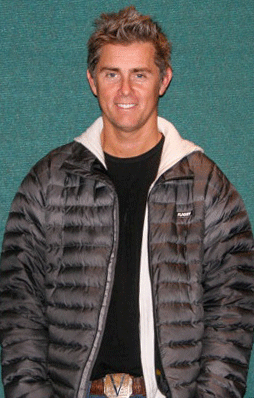Vassar Knows Drama!

Imagine an airline pilot so addicted to alcohol that he’d put the lives of more than 200 passengers in danger to satisfy his craving. Or an indigent French woman forced to become a prostitute to support her young daughter.
Vassar alumnae/i have been busy behind the cameras and way out front, bringing dramatic tension to darkened theaters across the world.
The movie Flight, penned by Oscar-nominated screenwriter John Gatins ’90, and the film adaptation of Les Misérables, which stars Anne Hathaway ’04 as “Fantine,” have taken audiences by storm—and earned acclaim in the process. Get a behind-the-scenes glimpse into the making of these movies.
John Gatins’s Worst Fears

Screenwriter John Gatins ’90 earned an Oscar nomination for best original screenplay for Flight, which follows airline pilot Whip Whitaker, portrayed by Denzel Washington. The gut-wrenching journey begins with a horrifying crash that could have killed everyone on board if not for Whitaker’s heroics in the cockpit, and continues as investigators begin to suspect that he had been intoxicated at the time of the crash.
Gatins, who has acknowledged getting sober at age 25, said the script was born out of his two worst fears: “drinking myself to death and dying in a plane crash.”
During a screening for Vassar film majors last fall, Gatins told students he wrote the first 30 pages of the script more than 12 years ago and shopped it around Hollywood, hoping to convince a studio to let him direct it. During that time, he said he rewrote it numerous times.
Gatins had the luxury of taking the plot in any direction he chose because it was a wholly original idea, inspired by conversations with Navy pilots who were acting as technical advisers for the movie Behind Enemy Lines, on which he worked in 2000.
“They were some really crazy guys, and it occurred to me [that military pilots] often become commercial airline pilots,” Gatins told the students. His fears were further solidified when he was seated next to a pilot on a flight. The man insisted on telling him all his troubles. Gatins recalled, “It occurred to me [that] people like this become alcoholics.”
Once he began work on the script, Gatins interviewed many more commercial pilots and read “lots and lots” of crash investigation reports compiled by the National Transportation Safety Board to make the story as authentic as he could.
But he acknowledged that the movie could not have been made without director Robert Zemeckis and Denzel Washington, who had been so moved by the script that they offered to work for well below their normal pay scales to make the movie.
“Once Paramount discovered the film could be made for $30 million, it was a no-brainer,” Gatins said. The movie grossed more than $60 million in its first three weeks in theaters, and it not only garnered an Oscar nomination for its screenwriter but also for its star—Denzel Washington.
Hathaway Lauded for “Raw” Approach
The honors kept rolling in for Anne Hathaway ’04, who attended Vassar for several semesters before finishing her undergraduate degree at New York University.* Hathaway earned an Academy Award as well as a Golden Globe for best supporting actress for her portrayal of “Fantine” in the movie version of the long-running Broadway play, Les Misérables.
Many moviegoers were surprised by Hathaway’s powerful singing voice and raw, emotional delivery, though the actress started taking voice lessons at the age of 12.
New York Times movie critic Manohla Dargis wrote that, at the end of the first act, “Anne Hathaway opens her mouth, and the agony, passion, and violence that have decorously idled in the background of this all-singing, all-suffering pop opera pour out. It’s a gusher!”
The songs from Les Misérables were sung live, rather than lip-synced to a soundtrack—an approach that would have proved daunting to many—but Hathaway has said she found it liberating. “There seems, to me, to be something selfish about trying to go for the pretty version of it,” she told Entertainmentwise
.com, “so I just sort of decided to apply the truth to the melody and see what would happen. I think it had a very freeing effect on us all.”
The movie snagged several awards, aside from Hathaway’s best supporting actress nod. It also won best musical, and Hathaway’s co-star, Hugh Jackman (“Jean Valjean”), won the best actor award at the Golden Globes. Les Misérables also won in the makeup and sound mixing categories.
*Vassar considers one an alumna/us upon matriculation.
Edward Cheetham and Elizabeth Randolph contributed to this story
